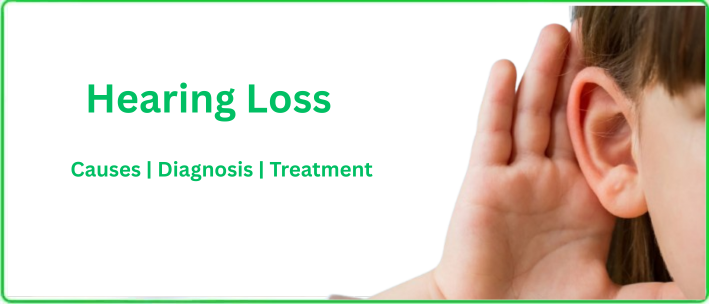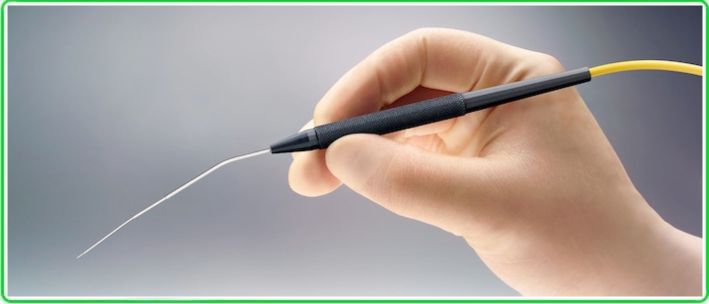HEARING LOSS: CAUSES, DIAGNOSIS, AND TREATMENT

Why does the old lady not hear well? – Because she is deaf in one ear.
This old riddle captures the essence of one of the most common yet underestimated health problems – hearing loss. Unlike blindness, which usually evokes compassion and understanding, hearing impairment is often met with irritation or jokes from others, leading to stigmatization. A person with hearing loss is frequently perceived as “funny” or “slow to understand,” which only deepens their isolation and psychological distress.
What is Hearing Loss?
Hearing loss is a partial or complete inability to perceive sounds of different frequencies and intensities. It can be temporary or permanent, affecting both children and adults, and has a significant impact on quality of life, communication, social engagement, and emotional well-being.
According to WHO statistics, over 1.5 billion people worldwide have some degree of hearing loss, and this number may reach 2.5 billion by 2050.
Main Causes of Hearing Loss
The auditory system includes the outer, middle, and inner ear, the auditory nerve, and the central auditory pathways. Damage to any part of this system can cause hearing impairment.
- Conductive Hearing Loss— impaired sound transmission to the inner ear:
- earwax impaction;
- outer or middle ear infections (otitis);
- otosclerosis;
- perforated eardrum.
- Sensorineural Hearing Loss— damage to the cochlea, auditory nerve, or central pathways:
- age-related hearing loss (presbycusis);
- noise-induced hearing loss;
- viral or bacterial infections (e.g., meningitis);
- ototoxic medications;
- vestibular schwannoma (acoustic neuroma).
- Mixed Hearing Loss— a combination of conductive and sensorineural mechanisms.
- Temporary Hearing Loss— swelling or inflammation during infections, barotrauma.
Key Symptoms to Watch For
- difficulty understanding speech, especially in noisy environments;
- turning up the TV or phone volume;
- a sensation of “fullness” in the ear;
- ringing or buzzing (tinnitus);
- distorted sound perception;
- trouble locating the source of a sound.
Diagnosis of Hearing Loss
According to clinical guidelines, a complete evaluation includes:
- Otoscopy — visual inspection of the ear canal and eardrum;
- Pure-tone audiometry — assessing hearing thresholds across different frequencies;
- Tympanometry — measuring eardrum mobility and Eustachian tube function;
- Otoacoustic emissions — especially in newborns and children;
- Imaging (CT/MRI) of the temporal bones or brain when indicated.
Treatment Options for Hearing Loss
Treatment depends on the cause, severity, and type of hearing impairment.
- Medical Management
- anti-inflammatory or antibiotic therapy for infections;
- vasodilators and nootropic drugs for inner ear circulation issues;
- discontinuation or replacement of ototoxic medications.
- Surgical Treatment
- myringoplasty for eardrum perforations;
- tympanoplasty;
- stapedoplasty for otosclerosis;
- tumor removal.
- Hearing Rehabilitation
- hearing aids (behind-the-ear, in-the-ear, pocket devices);
- bone-anchored hearing systems;
- cochlear implants for severe bilateral sensorineural hearing loss.
Prevention
- protect ears from loud sounds (earplugs, noise-canceling headphones);
- treat ear and upper respiratory infections promptly;
- regular hearing check-ups, especially for those working in noisy environments;
- newborn hearing screening.
KindCare Medical Center is a center for the destigmatization of hearing loss.
At KindCare Medical Center, we use advanced diagnostic tools and international treatment protocols to address all types of hearing loss:
- Dr. Maryna — ENT specialist, PhD, Associate Professor, with 25 years of experience treating hearing loss, tinnitus, and other ENT conditions.
- Dr. Timur — neurologist specializing in vascular and neurological causes of hearing impairment.
- Dr. Oksana — clinical psychologist and psychotherapist helping patients cope with the emotional and social impact of hearing loss.
- Full range of tests: audiometry, tympanometry, CT/MRI, laboratory analysis.
- Medical, surgical, and rehabilitation solutions tailored to each patient.
Book your consultation at KindCare Medical Center and protect what’s most valuable — your hearing.












